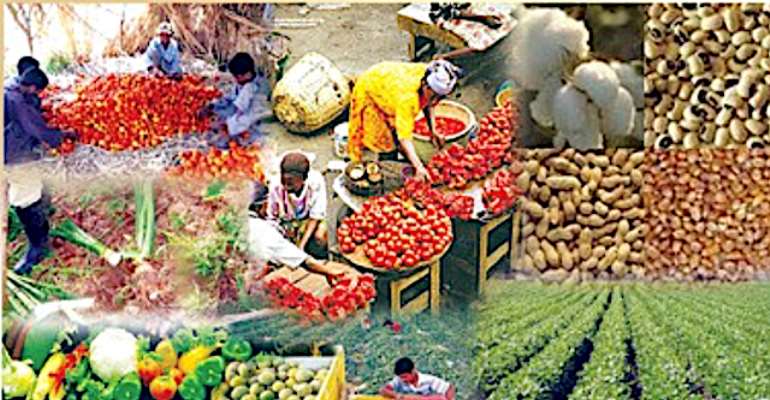Putting Economic Diversification In The Front Burner

Finally, the Petroleum Industry Act (PIA) has berthed, amidst hoots and cheers after a long and tortuous journey. It’s a well-intentioned attempt at changing the face and fortune of the oil industry, host communities and by extension the economy.
Indisputably, instituting transparency, good governance, efficiency in the industry on the strength of being an important linchpin of the economy and source of substantial foreign exchange is of immense consequence. And, whether such attempt becomes the much-needed elixir only time will tell.
It is trite that accountability is the bedrock of development which has been lacking in our journey through the years. And so many studies have stated that countries heavily dependent on natural resources experience slow or poor economic growth as result of the absence of accountability. For good measure, these countries have shallow tax water with few populations in their tax net depriving them of needed revenue.
It goes without saying that oil remain our major undoing having depended on it to the exclusion of other veritable revenue sources. And, this is in the face of successive governments failures in making needed investments from the phenomenal oil revenues.
With an economy in a tailspin, it is salutary to continue driving towards evolving other alternatives in dealing with the external shocks that attends natural resources like oil. We have failed to wean ourselves off the addictive resources with serious consequences. Basically, we have failed to lift our sight in diversifying the economy.
The diversification of the economy should be pivoted on strengthening sectors that remarkably contributes to the nation’s GDP, incentivizing non-oil export, leveraging on the vibrant Diaspora population, improving on the area of tax and creating attractive environment for foreign direct investment.
Pulling 100 million Nigerians out of the dark pit of poverty as envisioned by the present administration will remain chimeric under a mono-economy that’s heavily predisposed to the vagaries of market. For instance, China lifted 746 million about 65percent of its population out of poverty between 1990 and 2015 which was within the period of ‘aggressive export strategy and massive inward investments’. The desired economic stability with all its fruits is predicated on diversification.
We are in a quick changing world with oil fast losing its appeal putting countries like Nigeria in dilemma just as market is been threatened by major buyers setting targets in going green. As a result, the global energy trends are compelling a host of oil producing countries in rolling out reforms to diversify their economies
Patently, climate change is charging on the planet and the recent happenings of flooding, wild bush fires as classic case in points. The World Bank in 2017 pledged to stop investment in oil and gas from 2019, though the institution made a volte-face according to Bloomberg which cited Urgewald- an environmental lobby group which stated that the institution has continued to spend on fossil fuel projects. It, however, remains a strong hint on the direction the world is going.
This calls for a raft of policies by Nigeria in locking steps with the rest of the world and finding alternative to oil. With growing population, the country will require humongous resources to keep its citizens calm in providing for health, education, shelter, job opportunities. For instance, by 2050 Nigeria will have the third largest population in the world and overtake china to have the second largest by 2100.
The PIA puts gas flaring in its crosshairs which is commendable. Gas flaring is huge and continuing in spite of many attempts and at curbing it. In 2020, natural gas valued at 1.24 billion dollars was burnt or flared. The gas flared can be a rich vein of revenue if properly harnessed.
Though, the amount of carbon dioxide and methane released in gas production remain a drawback as a global revenue source especially in the thick of the call for a green planet. However, it’s my hunch that it holds great promise despite not being an entirely clean energy especially with requisite investment in innovation/technologies in containing the toxic gases.
The forces for pushing diversification like political will and discipline amongst so many other things are needed. The ‘Dutch disease’ has done incalculable damage to the will in putting the country on the path of sustainable economic growth and development. The almost interminable period it took to bring the PIA to life speaks to the commitment in having things of significance and national good achieved with dispatch.
Our journey to diversification will be a bridge too far without commitment. For the umpteenth time, successful diversification engenders economic development and reduce poverty which is crucial for Nigeria.
Abachi Ungbo [email protected]
